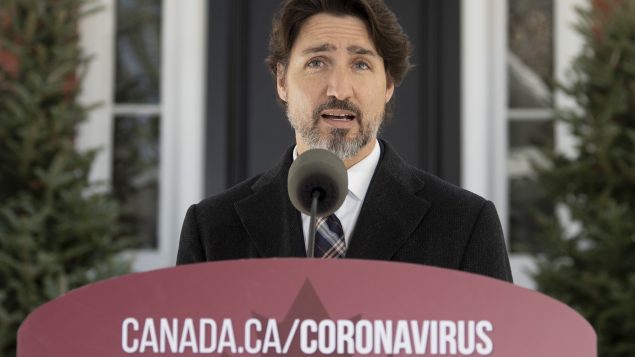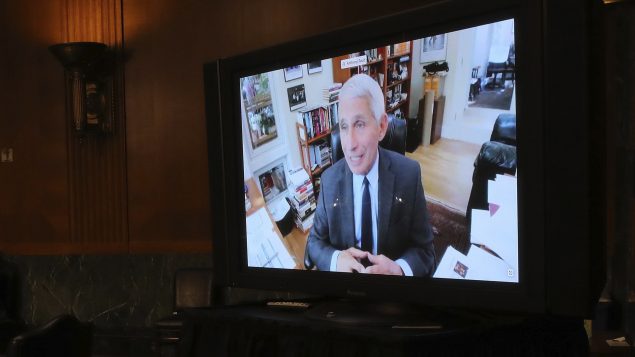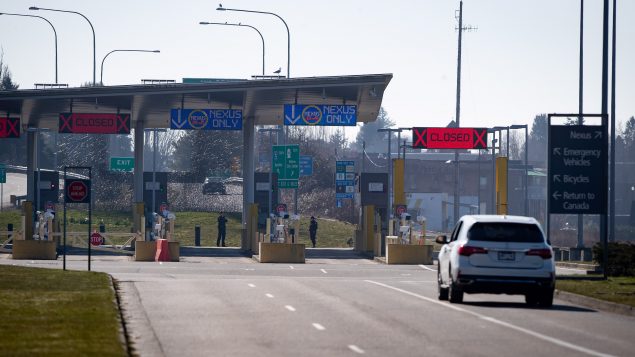Canada will be “very, very careful” about easing restrictions on international travel, including all non-essential travel from the U.S., as countries around the world begin to relax travel bans aimed at slowing down the spread of the COVID-19 pandemic, Prime Minister Justin Trudeau said Tuesday.
Canada and the U.S. reached an agreement on March 21 to temporarily close the border to non-essential travel in both directions, while keeping it open to commercial traffic and essential workers such as airline crews and medical workers. It was extended on April 22 by 30 days and is set to expire on May 21.
“We’re going to be very, very careful about reopening any international travel, including in the United States, before we feel that it is time,” Trudeau told reporters during his daily briefing in Ottawa.
“Preventing transmission from outside of Canada into Canada, once we have controlled the spread within Canada, will be an essential part of ensuring that we don’t fall back into a second wave that could be as serious as this wave we’re going through, or even more so.”
Keeping Canadians safe

Prime Minister Justin Trudeau delivers his opening statement during a news conference outside Rideau Cottage, Tuesday, May 12, 2020 in Ottawa. (Adrian Wyld/THE CANADIAN PRESS)
The federal government is focused on flattening the curve and decreasing the number cases of COVID-19, he said.
“Our priority needs to be keeping Canadians safe, and that is the spirit in which we have engaged in constant and constructive dialogue with the Americans to talk about shared interests, including the border,” Trudeau said.
“And I have no doubt we will have more to say in the coming days on how we continue to move forward in a way that keeps Canadians safe.”
Trudeau’s comments came as several provincial premiers have said that they oppose opening the border to non-essential travel from the U.S. until the situation there gets under control.
‘Really serious’ consequences

Dr. Anthony Fauci, director of the National Institute of Allergy and Infectious Diseases, speaks remotely during a virtual Senate Committee for Health, Education, Labor, and Pensions hearing, Tuesday, May 12, 2020 on Capitol Hill in Washington. (Win McNamee/Pool via AP)
And in the U.S., Dr. Anthony Fauci, the nation’s top infectious disease expert, warned bluntly Tuesday of “really serious” consequences of suffering, death and deeper economic damage if state and local officials lift stay-at-home orders too quickly.
Fauci’s testimony before a Senate committee came as more than two dozen states have begun to lift their lockdowns as a first step toward economic recovery.
“There is no doubt, even under the best of circumstances, when you pull back on mitigation you will see some cases appear,” Fauci told senators in an online testimony.
In fact, he said opening too soon “could turn the clock back,” and that not only would cause “some suffering and death that could be avoided, but could even set you back on the road to try to get economic recovery.”
Worldwide, the virus has infected nearly 4.2 million people and killed over 287,000 — more than 80,000 in U.S. alone. The death toll in Canada climbed over 5,000 on Tuesday with the total number of infections since the outbreak began topping 70,000.
With files from The Associated Press







For reasons beyond our control, and for an undetermined period of time, our comment section is now closed. However, our social networks remain open to your contributions.